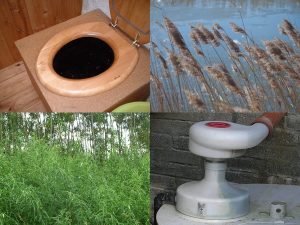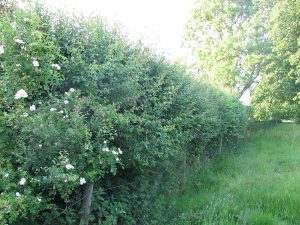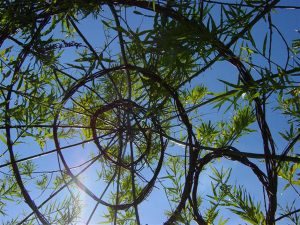Willow is a native UK plant, which grows well in our temperate climate and is very easy to grow from cuttings. There are hundreds of different varieties of willow. Each variety differs in terms of growth rate, colour of stem and leaf shape. Some willows only grow a few centimetres each year while some varieties can grow to mammoth proportions, up to 15ft each year. Willow is fantastic for nature – it is the second best after the oak for providing a habitat, a mature tree can support over 250 insects and birds. Many willow varieties provide both nectar and pollen for pollinating insects, often the first source each year. It is also an extremely efficient carbon capturing plant. Willow looks absolutely beautiful while growing and enhances all environments. Willow can be grown in willow beds, like at Monkswood, which are then coppiced, by cutting them down to the ground, annually. Willow is probably the most sustainable material you will ever use.
Willow has been used through the ages as a weaving material for containers and construction. Humans are hunter-gatherers and can only carry a limited amount of any material they need in their two hands. We have therefore always fashioned containers from materials around us. The first archaeological evidence of basketmaking is around 3000 BC. There is evidence that the first pots were shaped around baskets. The first Christian church built near Glastonbury has a roof which was constructed from basketwork. A basket makers apprenticeship was traditionally 5 years long and the first year would have probably been spent learning how to cut and sort willow for the basket maker.
During the war years willow was of national importance and baskets were used for transporting pigeons, gun and shell cases and dropping munitions and supplies to troops stationed abroad. During world war 2 it was forbidden to make baskets for anything other than the war effort.










